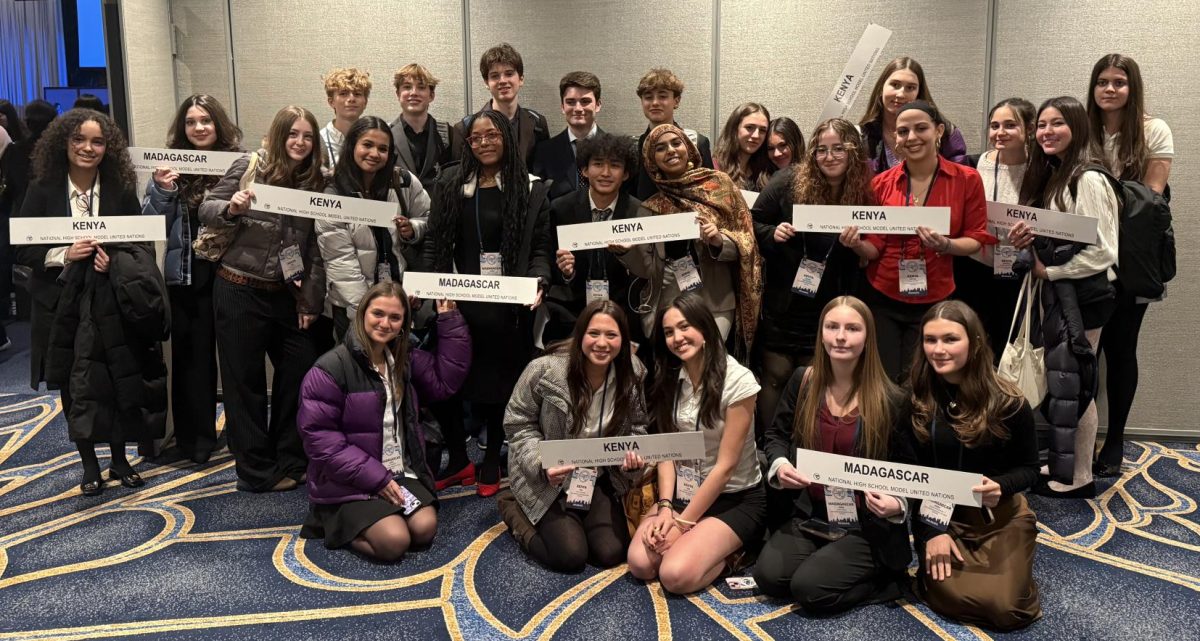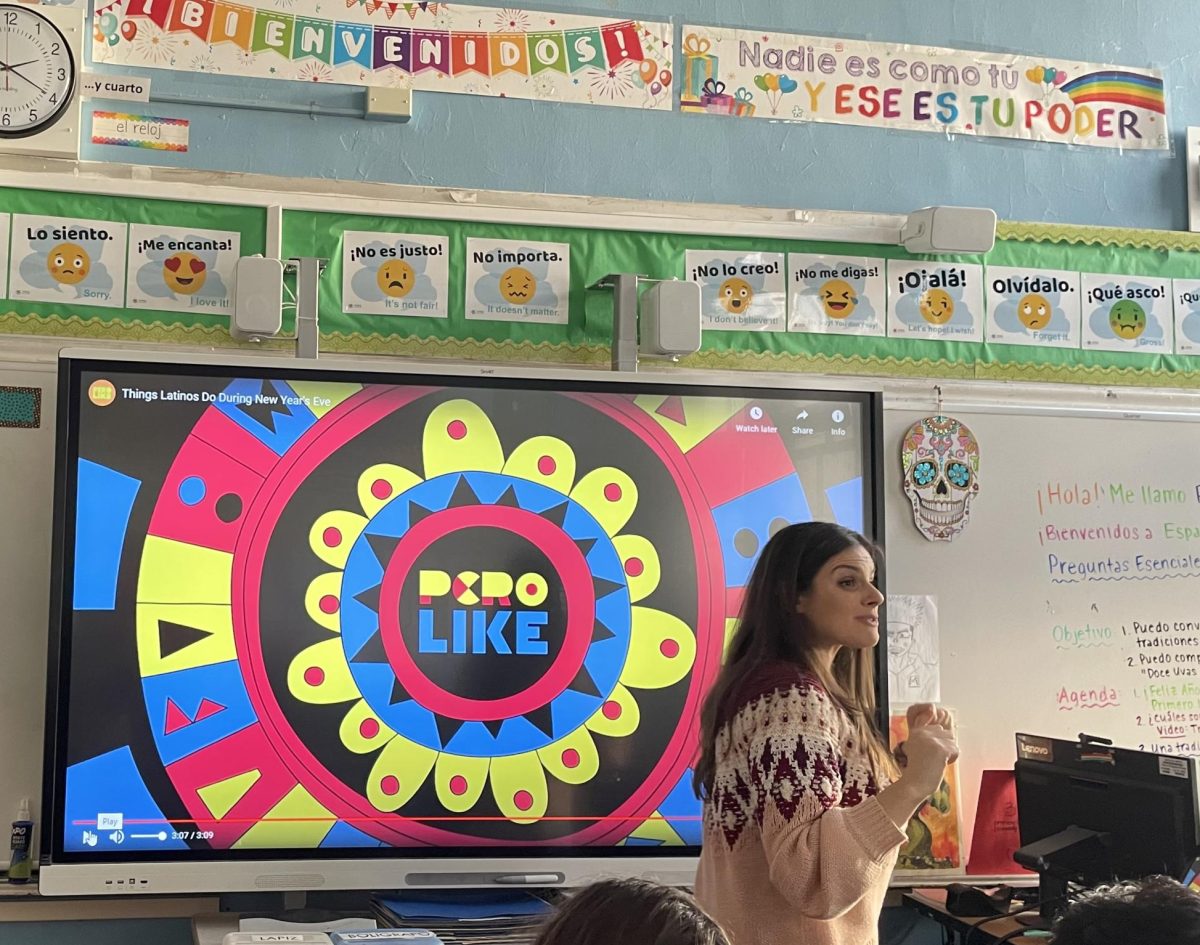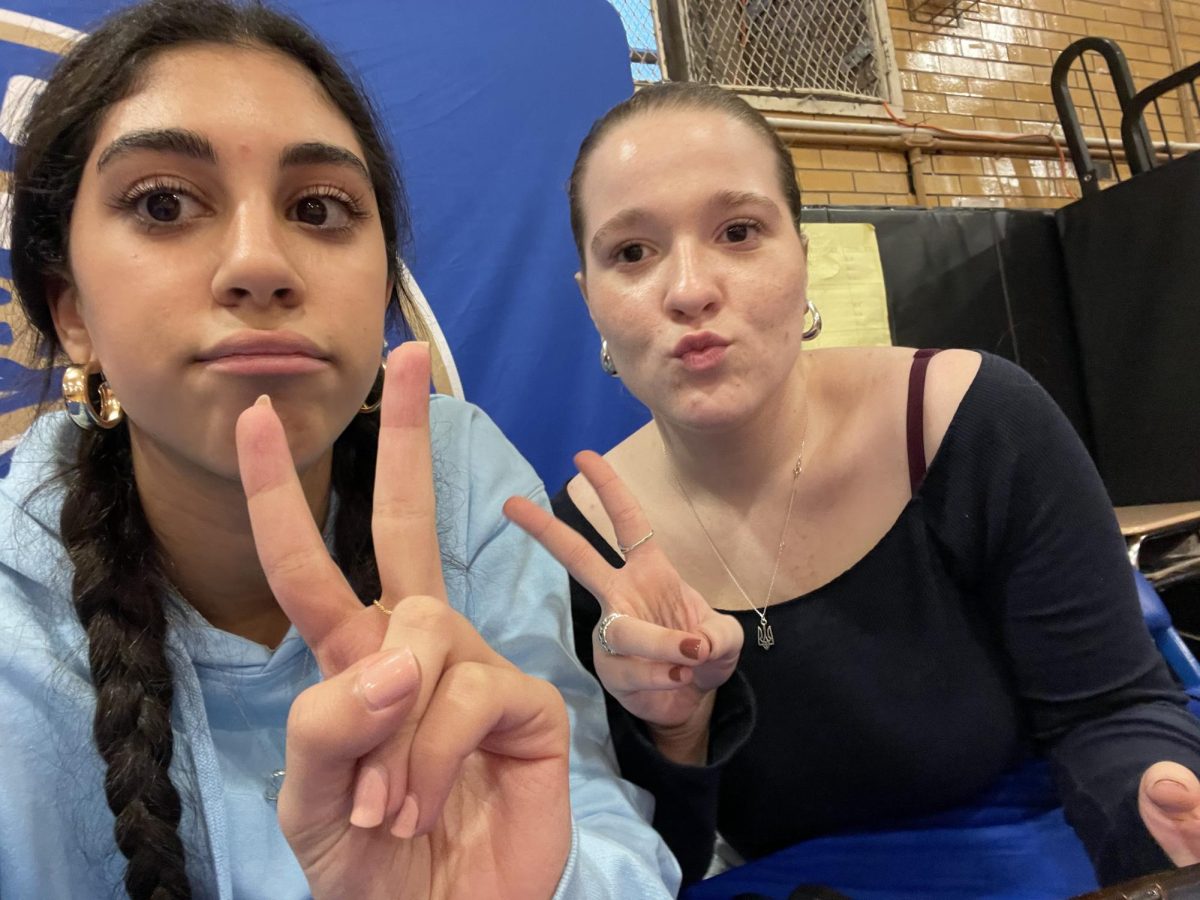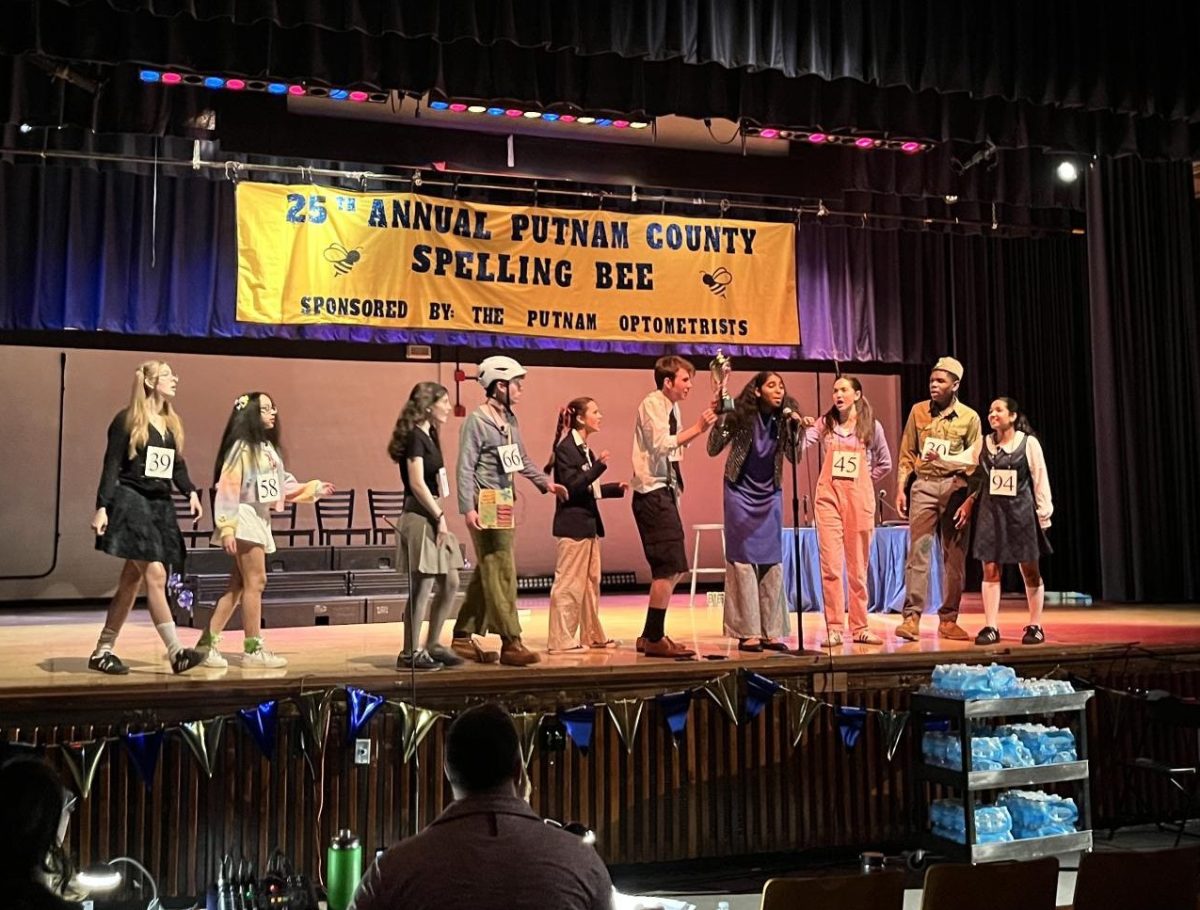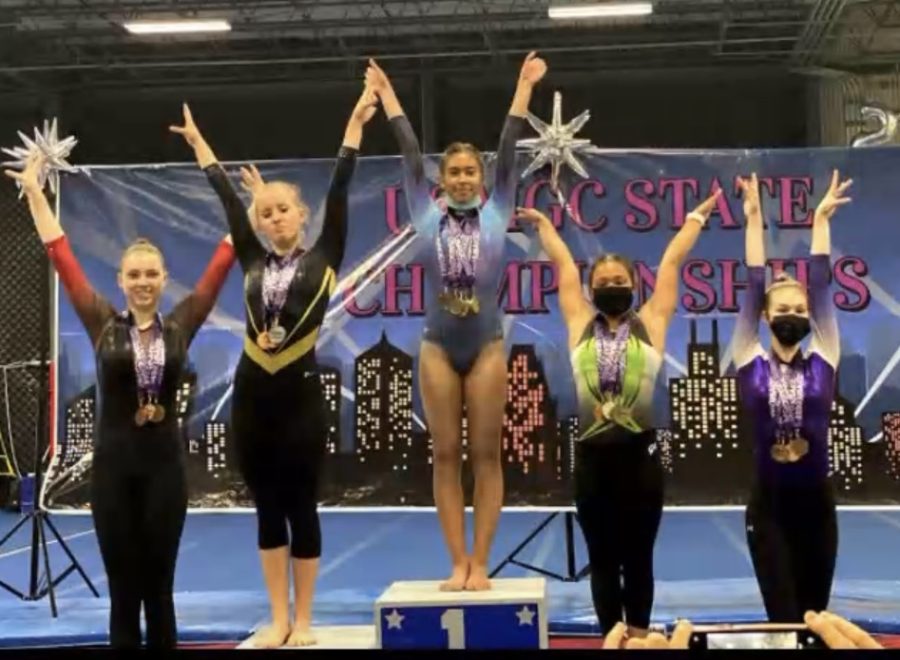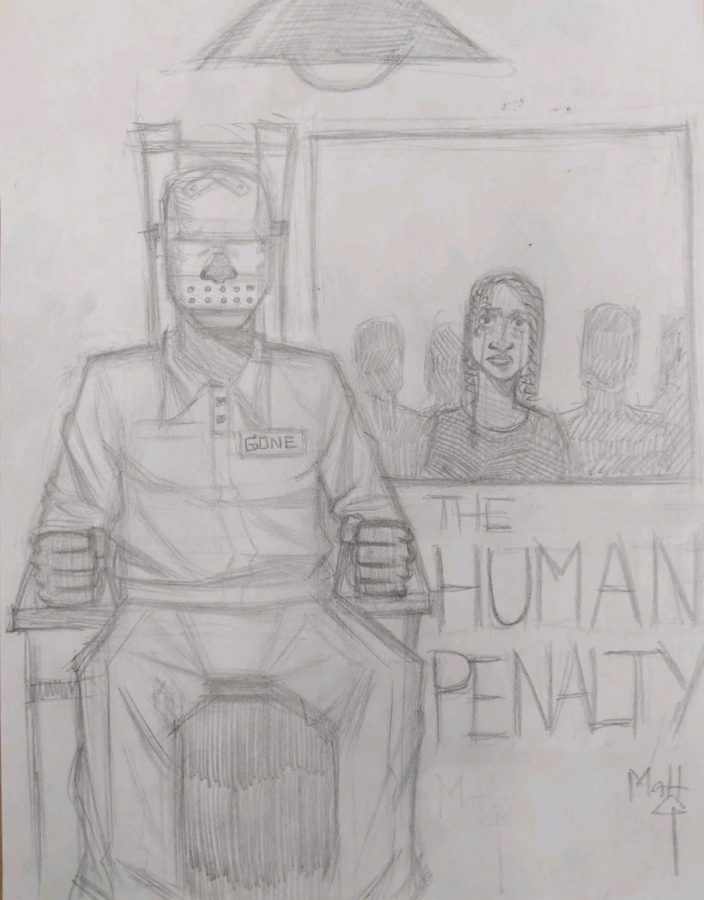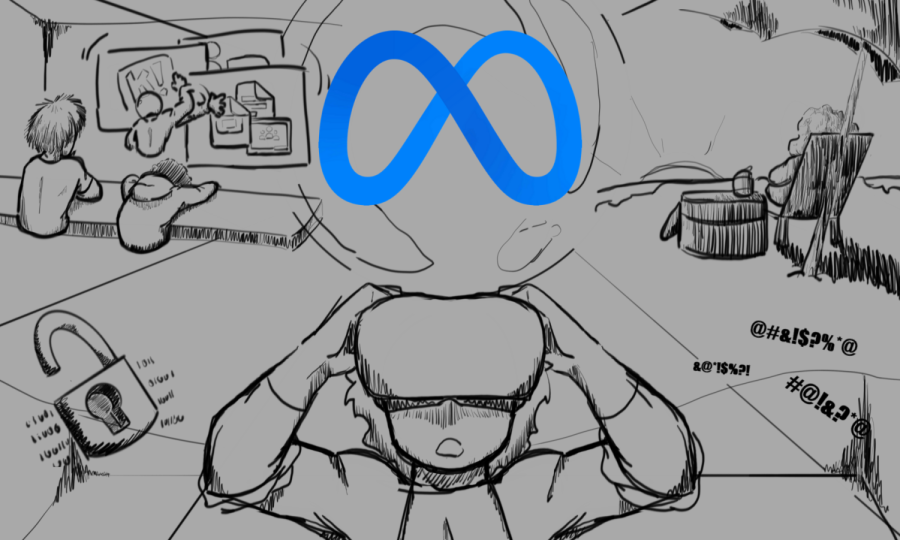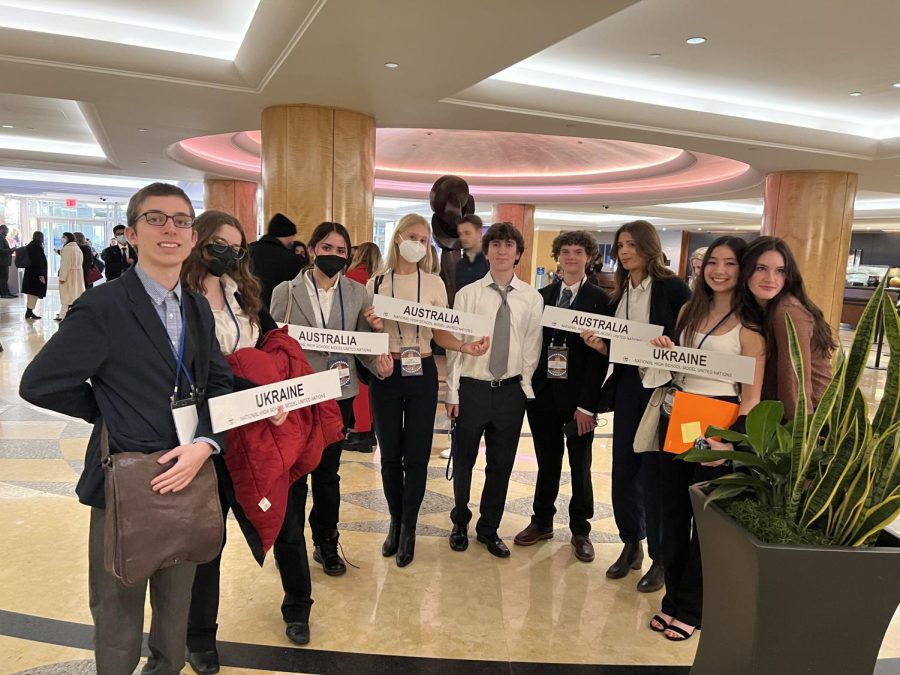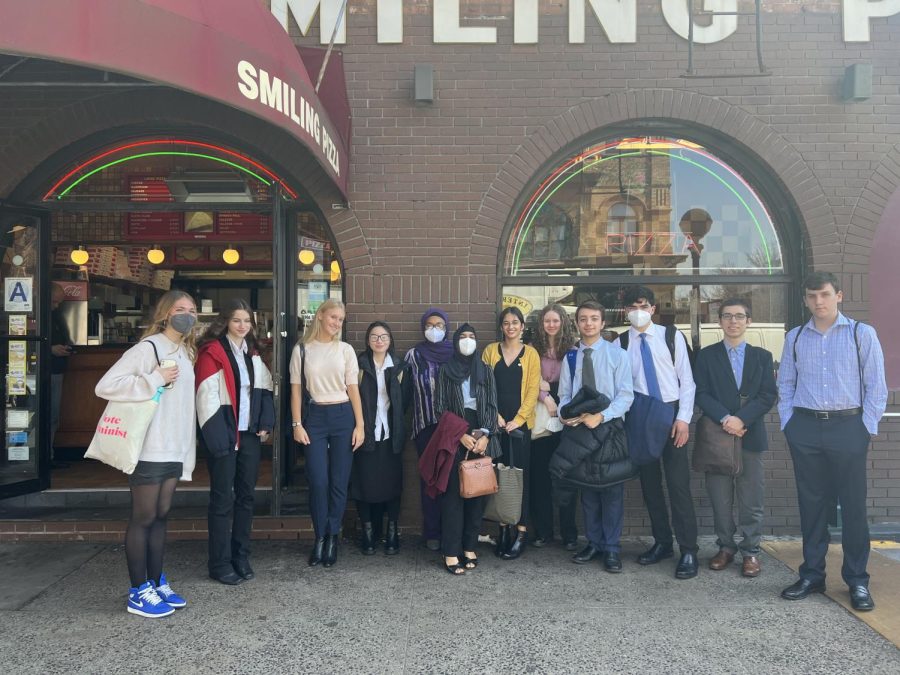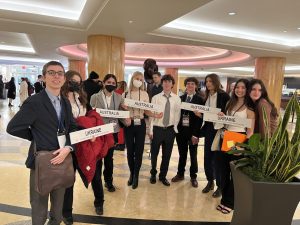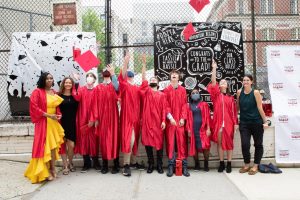In Trying Times, MBHS Represents Ukraine and Australia at the Annual International Model United Nations Conference
June 28, 2022
On Friday, March 18, a group of Millennium students gathered in front of the 7th Ave and 9th Street subway station, dressed in suits, skirts, blazers, heels. They each wore Ukrainian flag pins. The blue and yellow flags had been popping up in storefronts and apartment buildings all over the city to support the country in the wake of its invasion by Russia. But these students, heading to Manhattan, wore the markers also as representatives of the country at the Model UN Conference, set to begin that day.
Every year, MBHS’s Model United Nations club partakes in a four-day international Model UN conference in Midtown Manhattan, to represent one to two countries across a slew of General Assembly committees. After the 2019-2020 school year, club leadership was passed from Ms. Wentz-Lesman and Mr. Blair to Ms. Gaspard and Ms. Bognar, causing the club members to adjust to a new organization of the meetings. But the essence of the club remained the same.
In past years, MBHS has participated at the conference as Mongolia, Bangladesh, Ghana, Liberia, Cambodia, and South Korea. In representing smaller countries, Millennium MUN-ers were able to float around and insert themselves into places where they saw fit, keeping their actions attuned to their country’s level of involvement at the actual UN.
This all changed this year, however, when our school’s Model UN team learned that some of them would represent Australia while the rest would represent a country whose domestic situation became more and more prominent as the year went on–Ukraine.
When it was announced in December 2021 that Millennium would represent Ukraine–and Australia–Russian President Vladimir Putin had not yet launched his brutal invasion of the country, but Russians had been building up their offensive along its border with tanks, artillery, and additional soldiers for weeks. Whether Putin would decide to invade, however, remained uncertain. In this period of uneasiness, the club members plugged along with their research. They immersed themselves in committee topics ranging from chemical weapons in Syria to the decolonization of Western Sahara, not knowing whether they might need to pivot their approach to the conference should their country be attacked.
During mid-winter break, on February 24, 2022, Russian forces launched a full-scale invasion of Ukraine that shocked the world, despite previous warnings that Moscow had intended to do so. Reports of explosions in the cities of Kharkiv, Kyiv, Mauripol, and Odessa began to pour in, and it became clear that Ukraine was facing a devastating war.
By the time the first post-break Model UN meeting rolled around, nerves seemed to fill classroom number 329 and the tone of the usually animated group was muted. The approaching conference loomed over everyone and sparked more nervous anticipation among members than the average Model UN student experiences in a given year. “We might not be a country anymore by the time of the conference,” junior Orla O’Keeffe observed helplessly.
As the situation in Ukraine worsened–with Russian forces targeting civilians and the largest refugee crisis in Europe since World War II unfolding–members of Model UN expressed discomfort with the fact that they would have to participate in the conference as if global politics were business as usual. A few students mentioned that they felt uncomfortable going about the tasks of going to committee sessions and debating fishing laws while the nation they were representing is being pummeled with artillery, when millions are fleeing, and when children are being killed.
Despite their hesitations, knowing that National High School Model United Nations (NHSMUN) rules and procedures were rigid, club members plowed ahead and prepared for the conference. The students collectively decided they would do their best to reflect Ukraine’s current diplomatic situation in their assigned committee meetings, while still discussing topics other than the war in Ukraine.
On the first subway ride to Midtown, sophomore Tina Zheng, who sits on the social development committee, confessed she was “not sure what to expect” and had “some anxiety” but was confident in her debate skills to carry her through the conference.
Orla O’Keeffe, a junior, lent her thoughts three days before her third conference. As a member of the Special Political Decolonization Committee (SPECPOL), she said that she felt “nervous because the topics aren’t really related to the issue” even though the committee itself would be relevant to the invasion. Even though Ukraine’s politics are relevant to many committees in the General Assembly, the specific topics chosen for each committee were not inherently related to Ukraine because they had been decided upon months before the conference. Unfortunately, NHSMUN’s rules and procedures do not allow topic adjustments, no matter how pressing and relevant a geopolitical crisis may be.
Ms. Gaspard, who described her experience this year as having to prepare for the conference “from scratch” expressed that she had been “as excited about the conference as a lot of [the Model UN students] were.” She had worried “about how the conference was going to go” for the students representing Ukraine because of the escalation of the war. In the end, though, Ms. Gaspard says that “the kids were very professional” at the conference and that it was “really great to see” even though many new members were “anxious about whether they felt prepared.”
For the newcomers, nothing could truly prepare them for the procedural intricacies and energy of committee sessions at the conference. Many students felt that only after their first NHSMUN conference they could truly understand how the whole undertaking works. The environment of the conference rooms at the Hilton in Midtown cannot be described so much as it has to be experienced. Despite entering as newbies into the intimidating terrain of a daunting conference, many first-time MBHS Model UN participants bravely raised their placards to speak up and deliver remarks to rooms full of up to 100 strangers.
In her first conference in 2020, O’Keeffe gave a speech, despite her nerves, about the significance of a program dedicated to helping the Sahel region in Western Africa. By her third conference this year, she delivered three speeches with the calm demeanor of a seasoned MUN-er.
The Millennium Model UN students representing Ukraine found themselves on the receiving end of support from other students in their committees, including kids from Italy, Texas and Canada. In the Special Political and Decolonization Committee (SPECPOL) this year, MBHS Ukrainian delegates were befriended by Greece’s representatives who wore blue and yellow pins in solidarity.
It was not so easy for all delegates to embody their respective countries’ political leanings however. Russia’s delegate in SPECPOL seemed to have a hard time reconciling his personal feelings with his country’s actual policies; he could be seen casting pitying looks at Millennium’s Ukraine representatives during his speeches. O’Keeffe notes that he appeared to offer an anti-war message while discussing the territorial dispute over the Western Sahara with Morocco, while managing to avoid any talk of Russia’s brutal and deadly invasion of Ukraine. “He’s so hypocritical,” O’Keeffe said, shortly after the speech.
Though exhausted from the long hours they put in at the conference each day, the Millennium club nonetheless came away triumphantly from the first in-person Model UN since 2020. Reflecting on the group’s performance this year, Ms. Gaspard has new ambitions for the Model UN club and hopes to expand it. She plans to distribute more leadership roles to members and the whole group will work to recruit more students.
